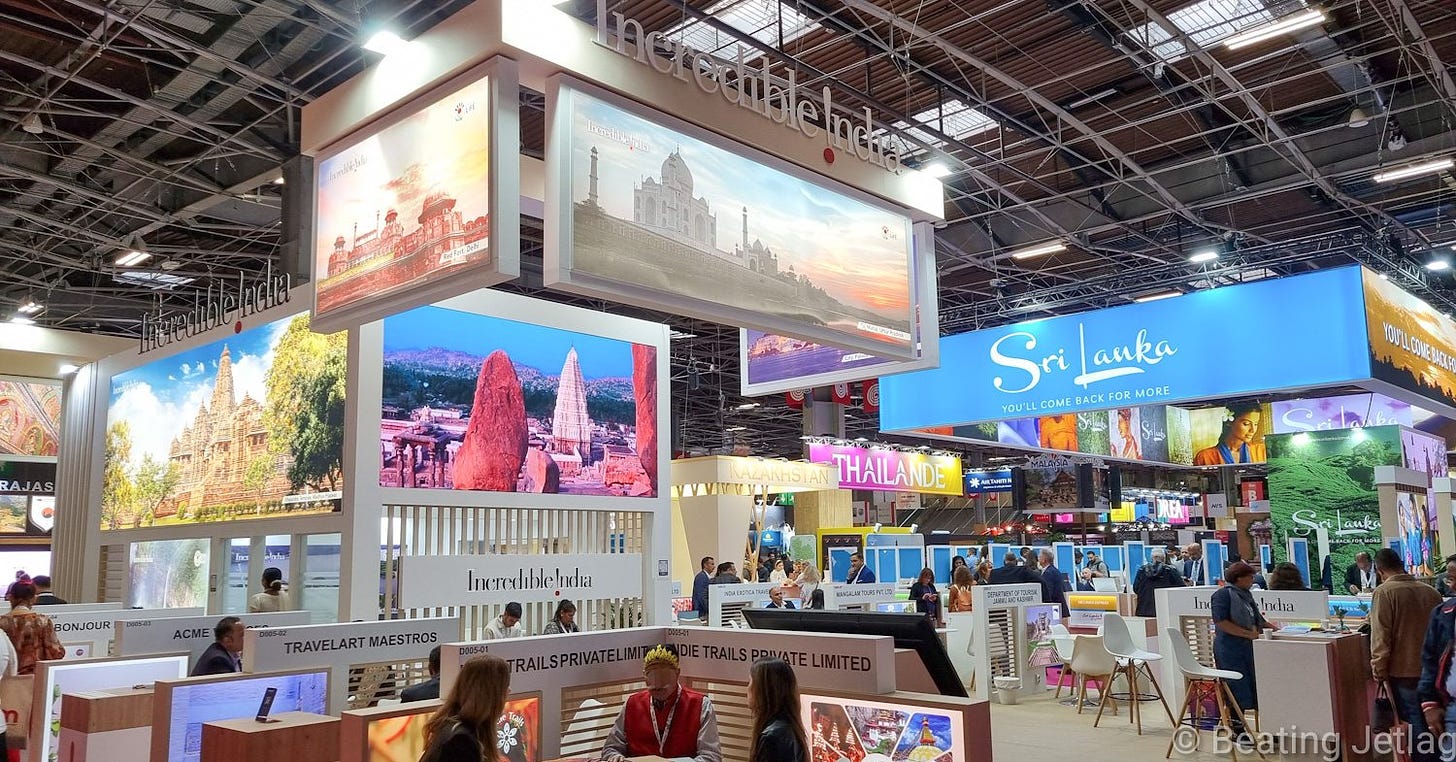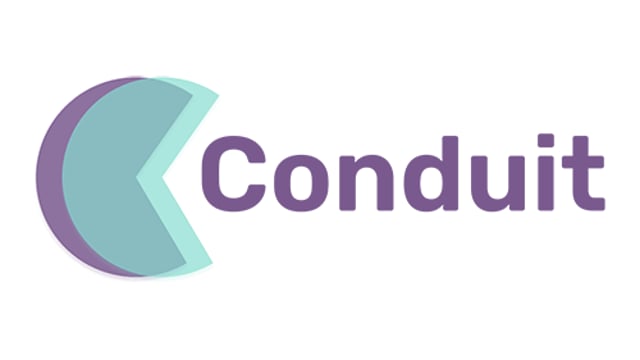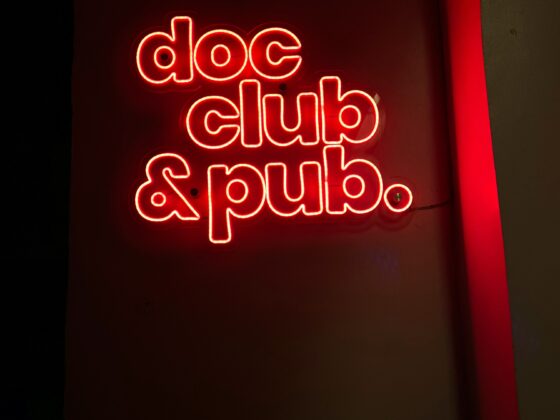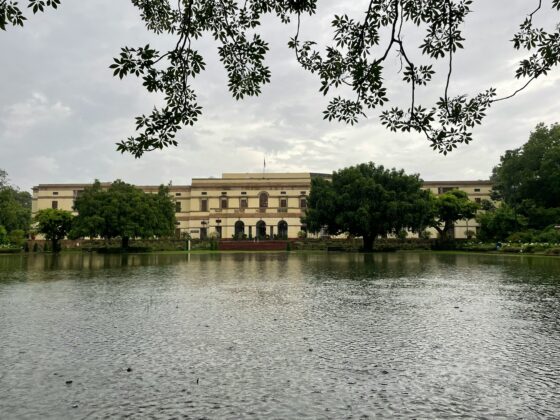Key takeaways from the tourism fair in Paris attended by 30,000 tourism professionals
As I’m writing this I’m on my way back from Paris, where I’ve attended IFTM International & French Travel Market, one of the tourism fairs in Europe with around 400 stands between tourism boards, airlines, tour operators, technology providers and more than 30,000 tourism professionals attending.
After visiting the ITB in Berlin earlier this year, it was my first time visiting Top Resa.
In this article I am sharing my impressions and some key takeaways from this year’s edition.
#1 – The travel industry keeps growing
According to a recent study, international tourism reached 97% of pre-pandemic levels in the first quarter of 2024 and will reach +2% above pre-pandemic levels by the end of the year, driven mainly by Europe and a rapid recovery in Asia.
And indeed as I was listening to the keynotes or walking between the stands at IFTM, the overall impression I got was that the industry is in good shape, with stands bustling with people and positive energy.
#2 – Destinations fight for attention
Of all exhibitors that were attending, the colorful stands of 170+ destinations from all around the world were a true feast for the eyes.
Each destination has a different story to tell, but how to stand out in a crowded space?
As a marketer I was particularly interested in observing the efforts put by each destination into highlighting their USPs or differentiating themselves from neighboring countries.
And as someone who has been on the exhibitor side, I am conscious of how much work (and resources) requires the preparation of these stands.
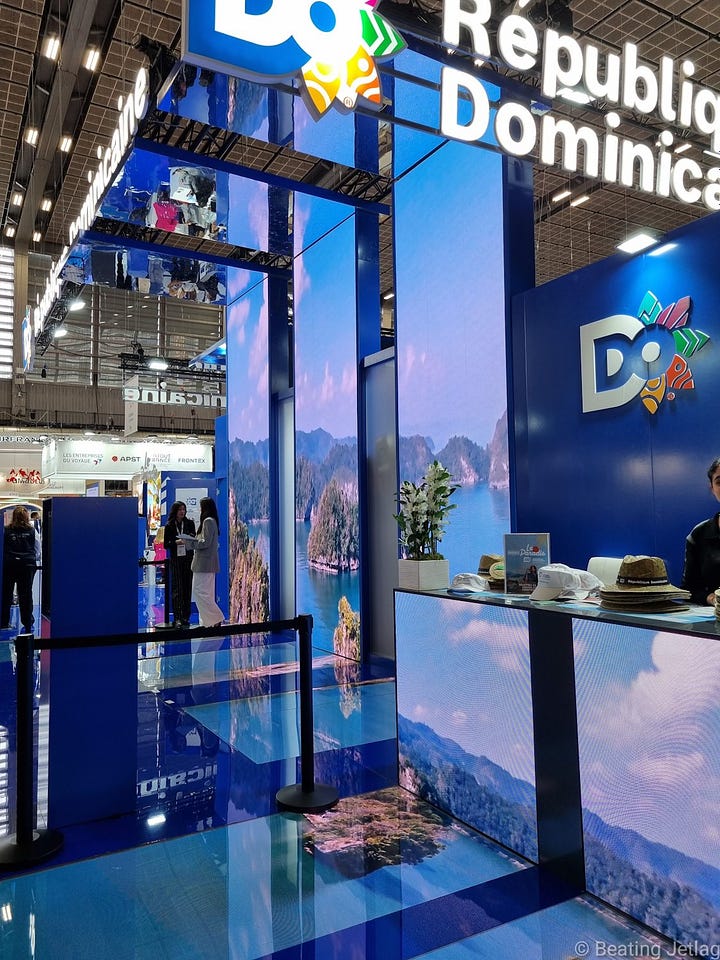
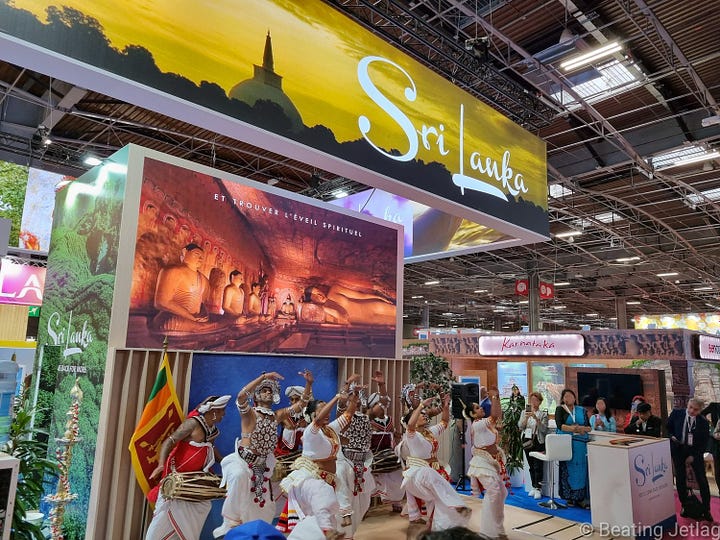
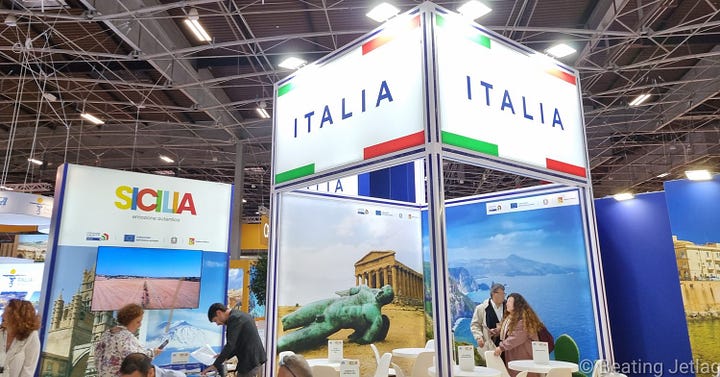
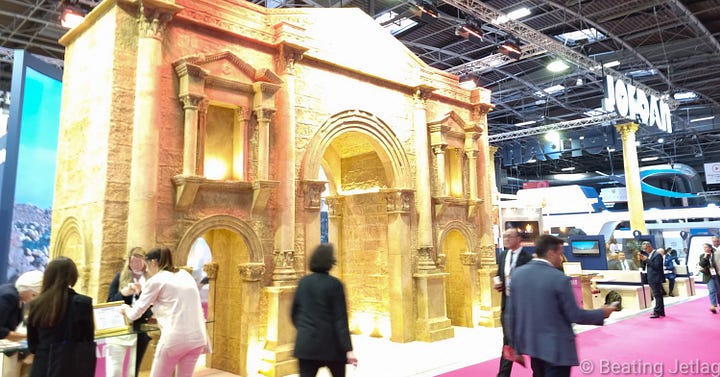
My takeaway: Big isn’t always better. In fact, while some destinations really caught visitors’ attention with flashy stands, others impressed even with little real estate used in a creative way.
#2 – AI remains a hot topic
One of the main themes in the tourism industry throughout 2024 has been Artificial intelligence and generative AI.
Unsurprisingly, several keynotes revolved around this topic -for example, how Artificial intelligence is transforming marketing and SEO practices, or what skills will be required in the tourism industry in the upcoming years to fully leverage this new technology.
In another interactive workshop, participants could learn how to generate personalized itineraries and travel plans based on their preferences.
#3 – Sustainability is still big
Also the topic of sustainability remains high on the agenda of travel & hospitality professionals. In fact, sustainable travel choices are not yet an overriding concern for travelers when planning or booking a trip, according to recent research.
Some keynotes highlighted examples of sustainable and responsible travel, good practices for reducing the carbon footprint of tourist mobility, and even the role of content creators in supporting the companies’ efforts in sustainability.
#4 – Immersive experiences: Virtual or Real?
Great traveler experience and an understanding of the traveler journey are becoming increasingly important in the tourism industry.
Therefore, letting customers experience a product can be a very effective way to encourage purchase. At the fair I came across two exhibitors presenting the same type of product in two different, but equally immersive, ways:
-
Lufthansa showcased their new cabin with an Augmented reality app that can be accessed directly from their stand
-
Air France on the other hand had a fully-functioning Premium Economy seat installed in their stand, with cabin crew assisting visitors.
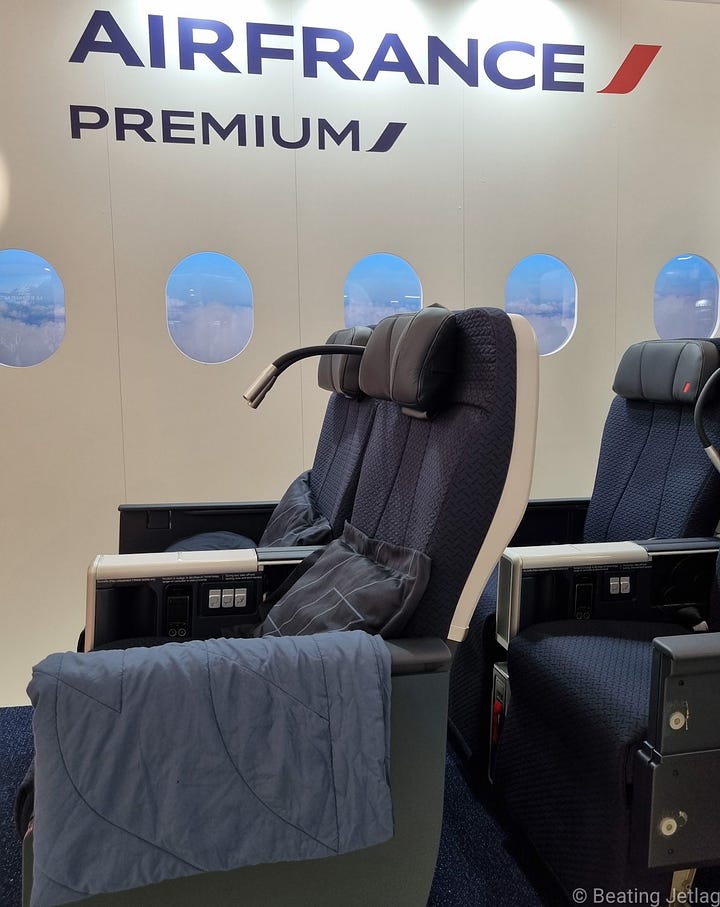
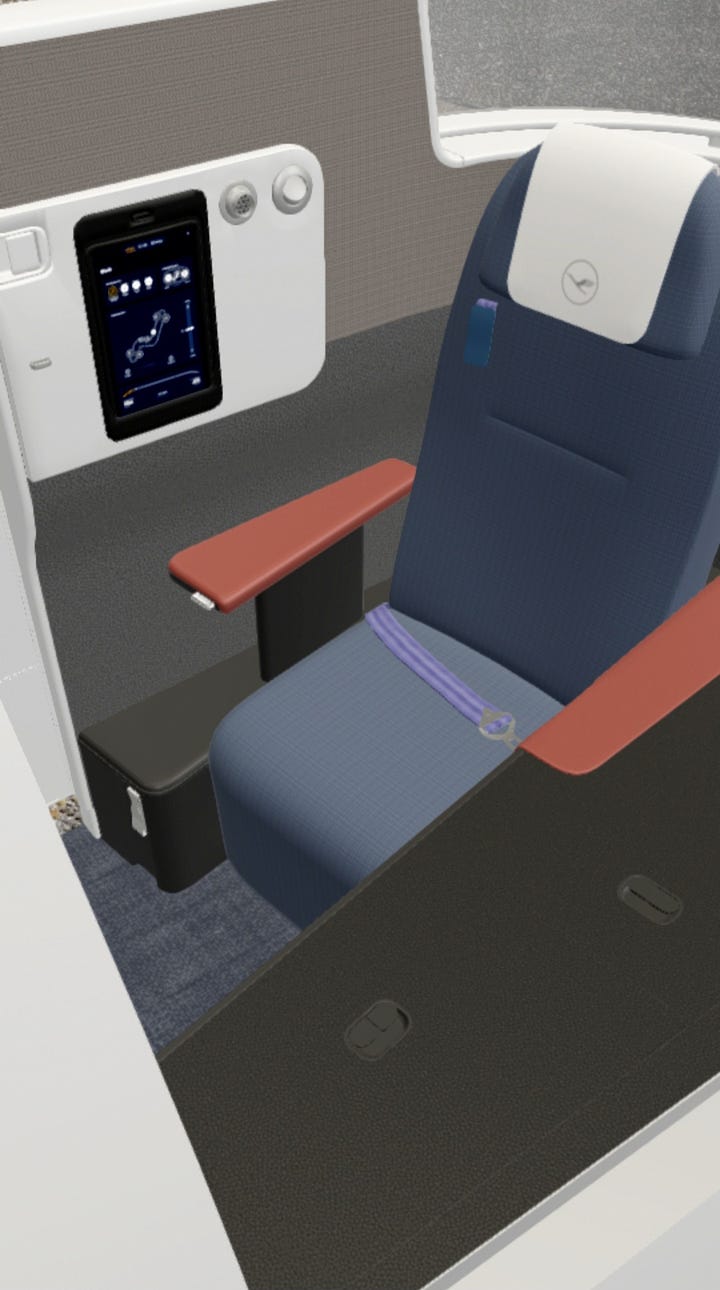
#5 – Paris Olympics and Travel
The Summer Olympic Games in Paris boosted French international air travel, even if temporarily.
One keynote I’ve found particularly interesting was about the solutions that airports and airlines implemented to manage exceptionally high volumes of passengers and luggage. Athletes for example could check-in their luggage at the Olympic village before boarding a plane, thus reducing the operational burden on airports.
#6 – The growth of fintech and travel insurances
With tourism numbers rising, travel disruptions are posing a bigger challenge both for transport companies and for travelers, as I wrote recently.
While travel companies can’t eliminate the unexpected, more and more technology solutions are entering the market to address traveler pain points.
Therefore, I wasn’t surprised to see several B2B and B2C payment and travel insurance providers presenting their solutions covering anything from natural disasters to travel disruptions.
IFTM 2024 – Final thoughts
Similar to other tourism fairs I’ve attended, IFTM was a great opportunity to meet with other industry professionals, listen to inspiring keynotes and feel the pulse of the tourism industry.
While the exhibition is quite big, one day was enough to visit most stands -unlike for example the ITB in Berlin, where you’ll need at least two days to explore all areas and pavilions.
To make it easier to manage the schedule and navigate through the exhibition grounds, registered visitors and exhibitors had access to a very intuitive platform to book meetings, find conferences and locate facilities.
Finally, it’s also worth noting that the fair is mainly targeted at the French market and therefore the majority of conferences were in French. Nevertheless, most exhibitors speak English and some of the conferences were translated into English, too.
All in all, it’s great to see that so much is going on in the tourism industry and that there are so many things still to come.
Looking forward to next year’s edition!
About me
As a passionate traveler and tourism professional I’ve experienced hundreds of journeys, from common to exceptional: From hiking the Andes to flying Business Class, from camping in Serengeti to staying in luxury resorts in Maldives.
In my career I’ve driven brand collaborations, scaled up communities and websites and helped tourism companies tell their story and sell their products worldwide.
On Beating Jetlag I’m wearing the traveler’s and tourism insider’s hat to talk about unique traveler journeys and other “juicy” topics in travel & hospitality.
